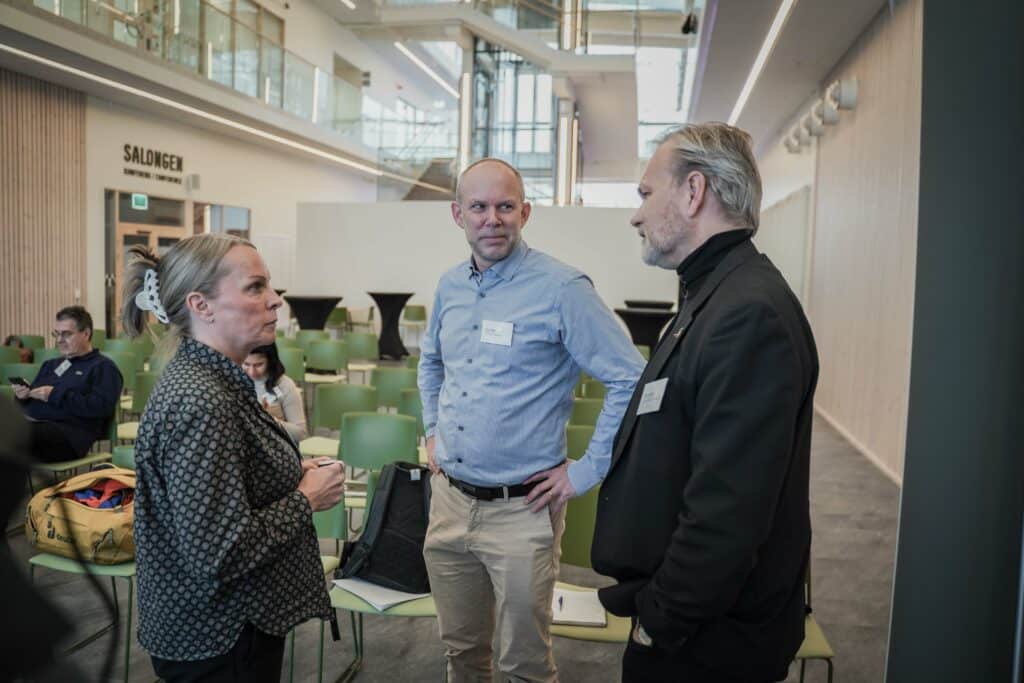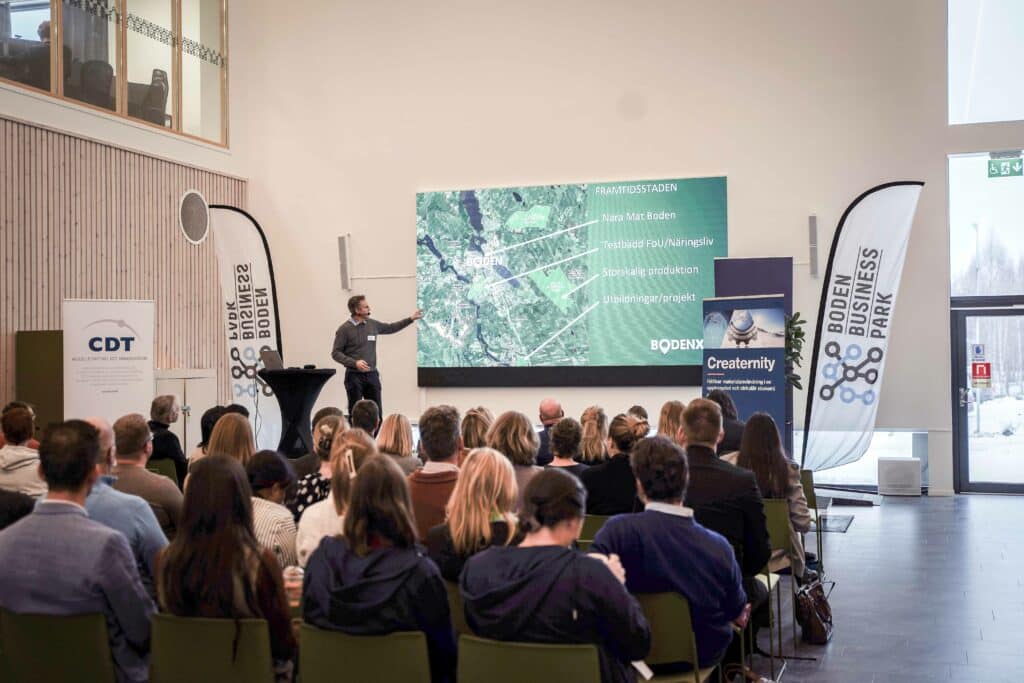Boden has the ultimate conditions to develop and test the sustainable food production of the future. During a seminar on this very theme, researchers and experts explained what it could look like.
The seminar “Circular food production of the future” held at Boden Business Park was the conclusion of a two-year project on how to make future food production even more sustainable by using closed-loop systems, waste heat and artificial intelligence (AI).
Researchers in various fields have worked together across borders to investigate how the techniques could be adapted to optimize the production of algae, fish, insects, and greenhouse cultivation.
– It has been great fun, but also challenging as we come from different disciplines. Here I, as a biochemist, have needed to understand control technology, or machine learning But it also provides unique knowledge that hopefully allows us to take the next step, says Ulrika Rova, Professor in Biochemical Process Engineering at Luleå University of Technology.
The project has created models showing that the system is feasible; now, the theory needs to be tested in practice. The ultimate solution would have been a demo facility with the opportunity to integrate the four production systems. An optimal location identified is the Plug & Play industrial area in Boden where all the conditions are already in place.
– What makes Boden unique is precisely the conditions that exist in this area. Electricity, biogas, data centers and other things are planned. Much of the infrastructure is already in place. From our side, it would be ideal if someone invested in a pilot plant where we can measure and test the technology, says Michael Nilsson, project manager at Luleå University of Technology and adds.
– This model can be applied in other places than Boden, but if we look at what is already happening in Boden, with H2 Green Steel’s establishment and the amount of waste heat that will be in the area, there are opportunities to be at the forefront of the development of smart and circular food production.
 Ulrika Rova left and Michael Nilsson right, both from LTU.
Ulrika Rova left and Michael Nilsson right, both from LTU.
The seminar was a melting pot of facts and ideas. Researchers and experts in various fields presented how the different systems work and how machine learning can handle the thousands of parameters required for them to work together.
– Managing large amounts of data is crucial for the effective functioning of these circular systems. We are looking at technology that is self-learning and adapts to different factors such as wind, temperature and humidity, which is crucial for both greenhouses and fish farms,” says Michael Nilsson.
Several good examples in Boden
The audience included 60 participants from different sectors, authorities, companies and investors. Which Håkan Nordin, business developer at Boden Business Park, saw as hugely positive as one of the challenges is to create an understanding of the whole.
– I’m very pleased that we have representatives from the region, the county administrative board, the Swedish Energy Agency and the Swedish Agency for Economic and Regional Growth here. It is important for authorities to understand the opportunities and challenges this may present,” he says.
One is the funding of a demo facility to take the project from theory to practice.
– It’s not entirely free, but we already have several good examples in Boden where the business community, the municipality and academia have worked together to take research to the next level. The Plug & Play greenhouse is an example of this. Hopefully there are companies that see the potential here and want to invest. We will do everything we can to make this possible,” says Håkan Nordin.
 Håkan Nordin talks about the opportunities in Boden.
Håkan Nordin talks about the opportunities in Boden.
The Intelligent Food Production Systems project aims to integrate land-based fish farming with greenhouse, algae and insect farming, creating a self-sufficient ecosystem. As the principal of the AI project, the Swedish University of Agricultural Sciences (SLU) collaborates with various partners: Luleå University of Technology, Umeå University and ONar Sweden and Boden Business Park. The project is financed by government funds through Formas and is based on the conditions that exist in Boden.
– If we were to fast-forward five years, I hope that this project has contributed to a change where we use energy more efficiently than today. That AI plays a significant role in the interaction between different parts of the food chain when producing food and that we have achieved a form of symbiosis,” says Håkan Nordin.
More sustainable future
Intelligent Food Production Systems is one of many initiatives in which Boden participates, aiming to promote circular and more local food production, by making use of local resources and technological advances. It is an attempt in the municipality’s commitment to not only adapt to the green transition, but to lead it and create a model for others to follow in the pursuit of a more sustainable future.
If you want to establish yourself in Boden or know more about the conditions here. Contact Håkan Nordin: